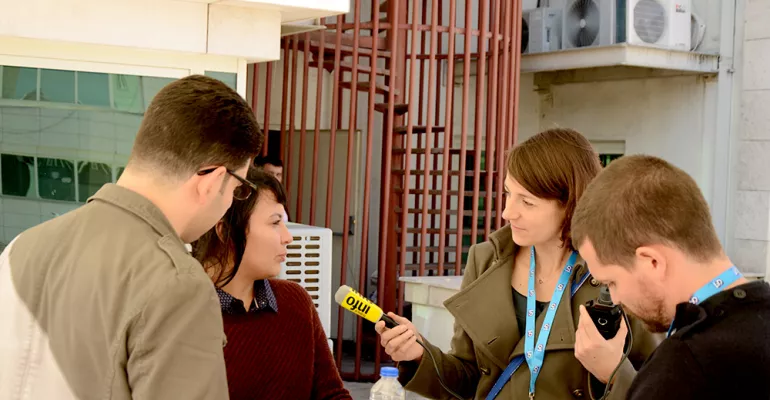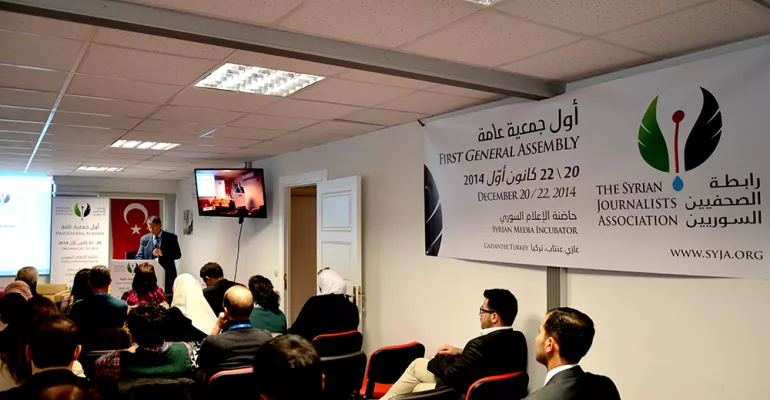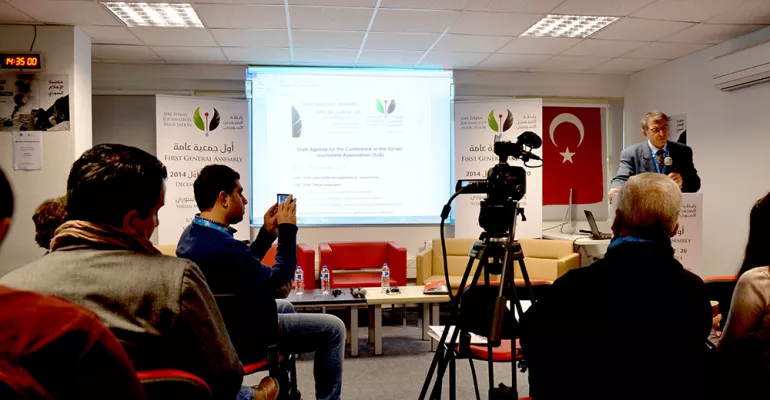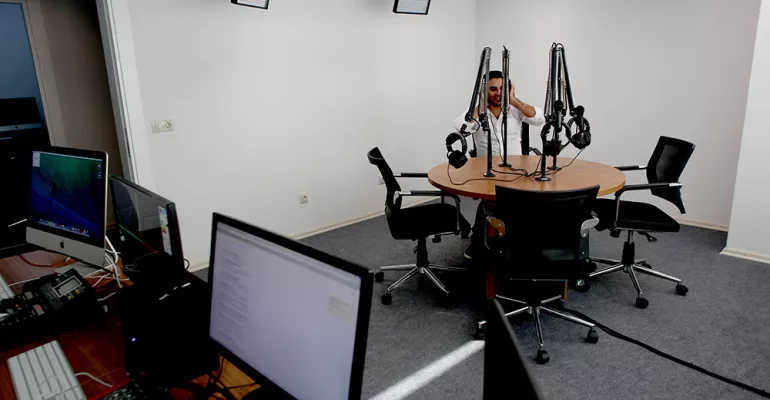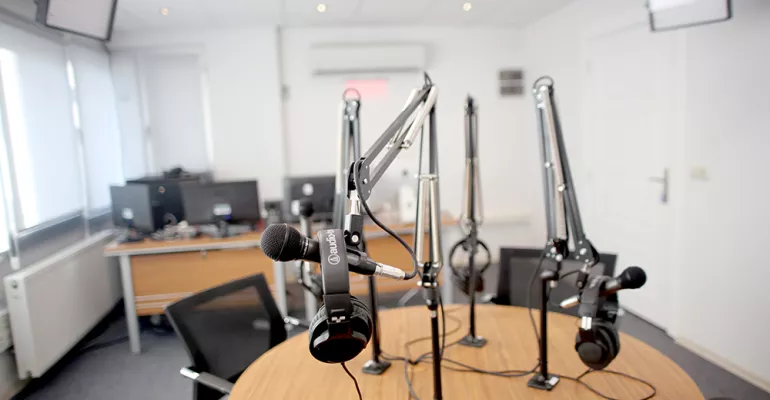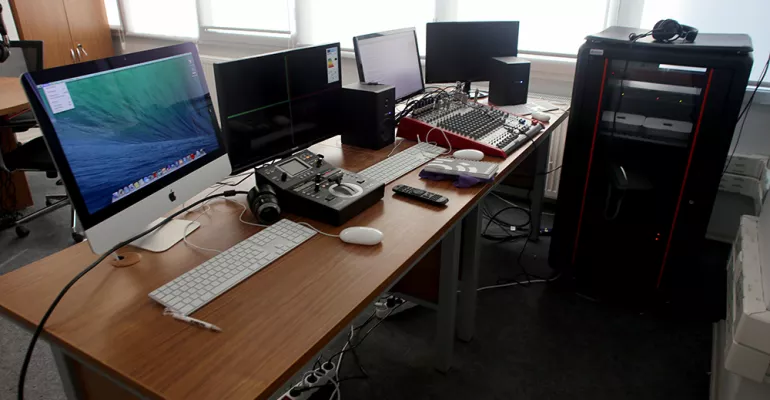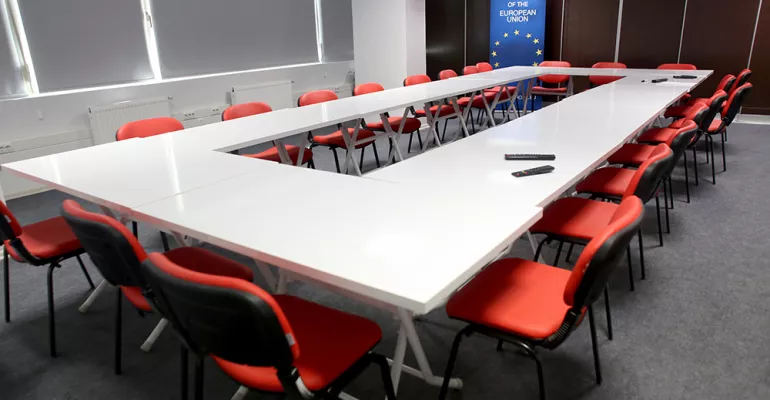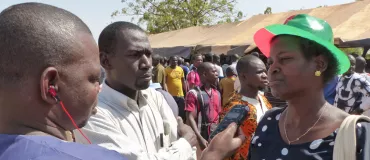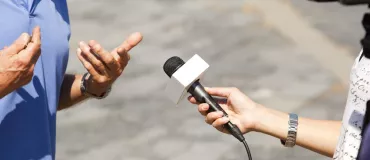The Syrian media incubator
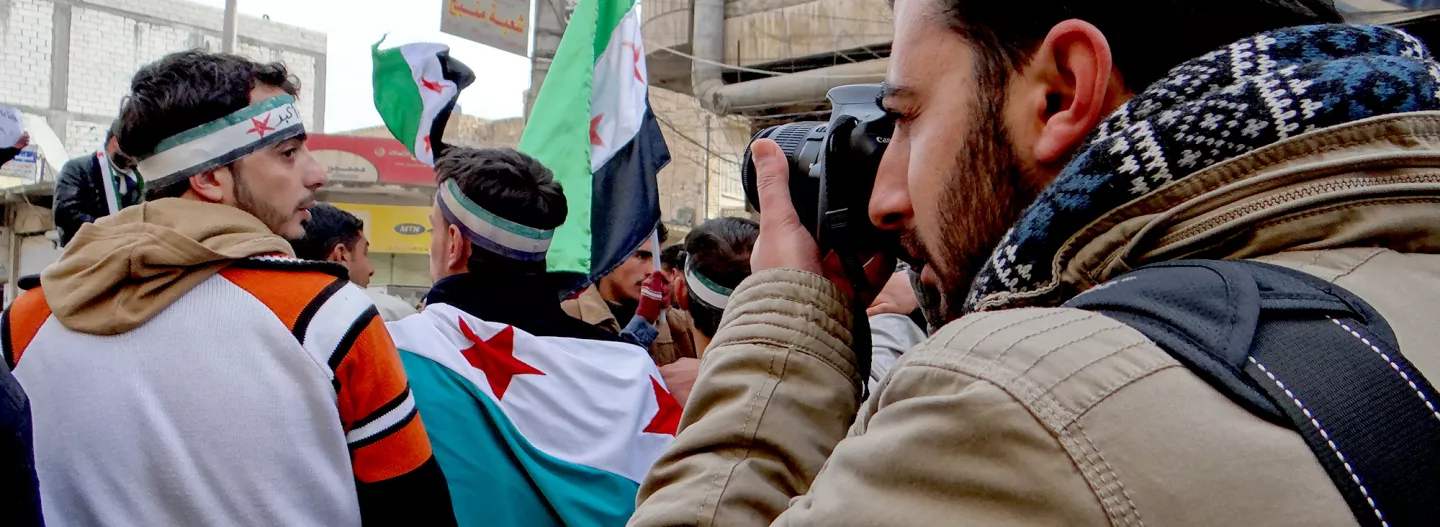
Goals
Presentation
Since the beginning of the Syrian uprising in March 2011, citizen journalists and bloggers have worked hard to report on the situation in the country. As the only witnesses in a territory where the international press is banned and where information is manipulated by the various parties involved in the conflict, these media are up against violent repression.
Despite their brave determination, these journalists struggle to deliver reliable, high-quality information. Many do not have basic journalism training and had, at the beginning of the crisis in 2011, limited technical resources to produce or disseminate content. The biggest problem they face is the difficulty in travelling around the country to verify their information and bypassing censorship (power cuts, Internet control, FM signals under surveillance).
As the conflict has become more entrenched and in the face of a bloody repression, the peace movement has given way to armed conflict and an accentuation of tensions between communities. More than ever, free, independent media who represent all minorities are the key to national cohesion.
To support such media as they take on this challenge so crucial for the future of their country, and to work towards a democratic transition, CFI and its partners are helping to develop the professional skills of new Syrian media through the "media incubators" project.
Selected from known networks, for their experience but also in the interests of representation of minorities, the journalists can thus produce and disseminate quality information, develop their structure, and contribute to the emergence of a democratic alternative.
Project beneficiaries
- "Citizen-journalists" without basic journalism credentials but who have, since the start of the conflict, acted as mouthpieces to provide information to the outside world
- Radio presenters, videographers and film directors with knowledge of image and sound recording but lacking media experience
- Independent journalists with experience in the areas of TV, radio and the written press
- "Distributors" who, with scant means, strive to disseminate information
Special emphasis is placed on representation of all minority groups and inclusion of women.
Files to download
Actions
Production of high-quality news
The project offers training sessions on the production of reliable, balanced news, ensuring the new media are aware of their role in building national cohesion.
Training and support focus on the following areas:
- Physical security and cybersecurity
- Psychological support
- Ethical journalism
- Support for the written press / online press / bloggers
- Support for radio production
- Support for video production
Death of a young journalist casts a shadow over the first training session within the Syrian Media Incubator
Radio Rozana Journalists Training at the Syrian Media Incubator
Syrian journalists mobilise for World Press Freedom Day
Syrian journalists trained in mobile-phone film-making
Dissemination of media production within the country
Since it is no longer possible to access traditional news communication networks within Syria (radio, TV or print), a media incubator has been set up in Gaziantep (Turkey), open to journalists, distributors and producers working for Syrian media.
Chosen for its easy accessibility from Aleppo, this is a place dedicated to reflection, training and exchanges. It also offers technical facilities (recording studio, computer equipment, cameras) and secure connections.
In parallel, the project aims to support the distribution of newspapers and radio broadcasting in Syria.
Watar: A Local Initiative for the Syrian Population
Syrian print media under discussion
Aleppo Media Center set to launch its radio station in northern Syria
About Yaman…, a Syrian short film
Structuring of media organisations in the Syrian audiovisual industry
To deal with the situation created by the crisis, the new Syrian media need to become structured and organised.
Three conferences – attended by around 30 to 40 professionals – are held on two main themes:
- The role and status of the media in building national cohesion,
- Structuring media organisations and networks.


